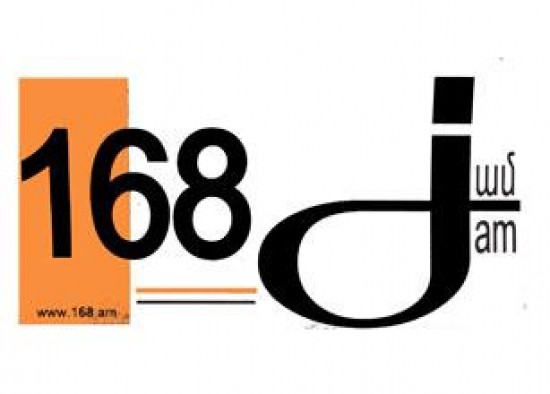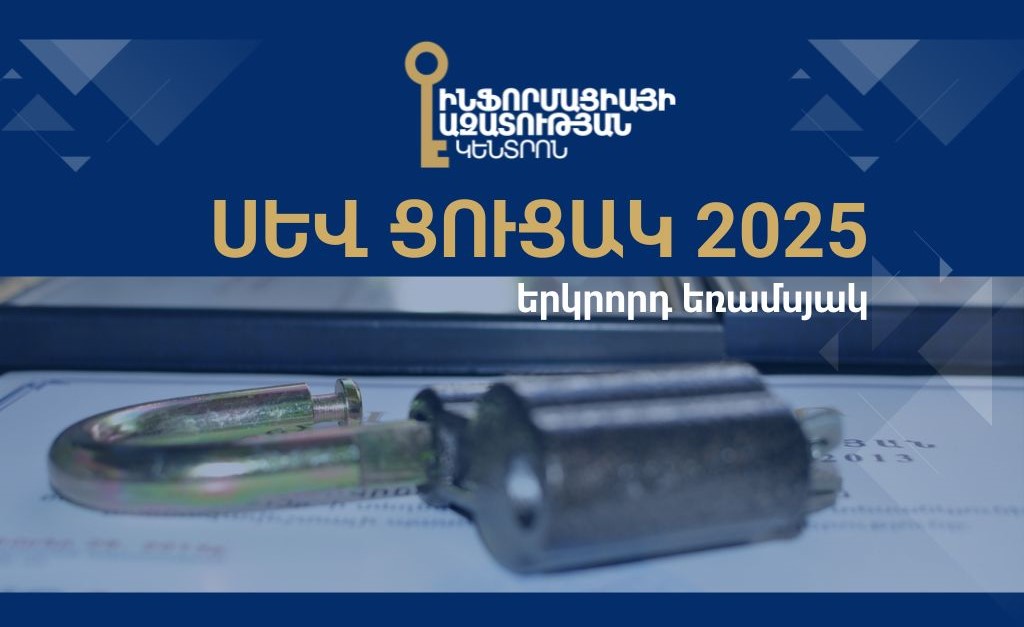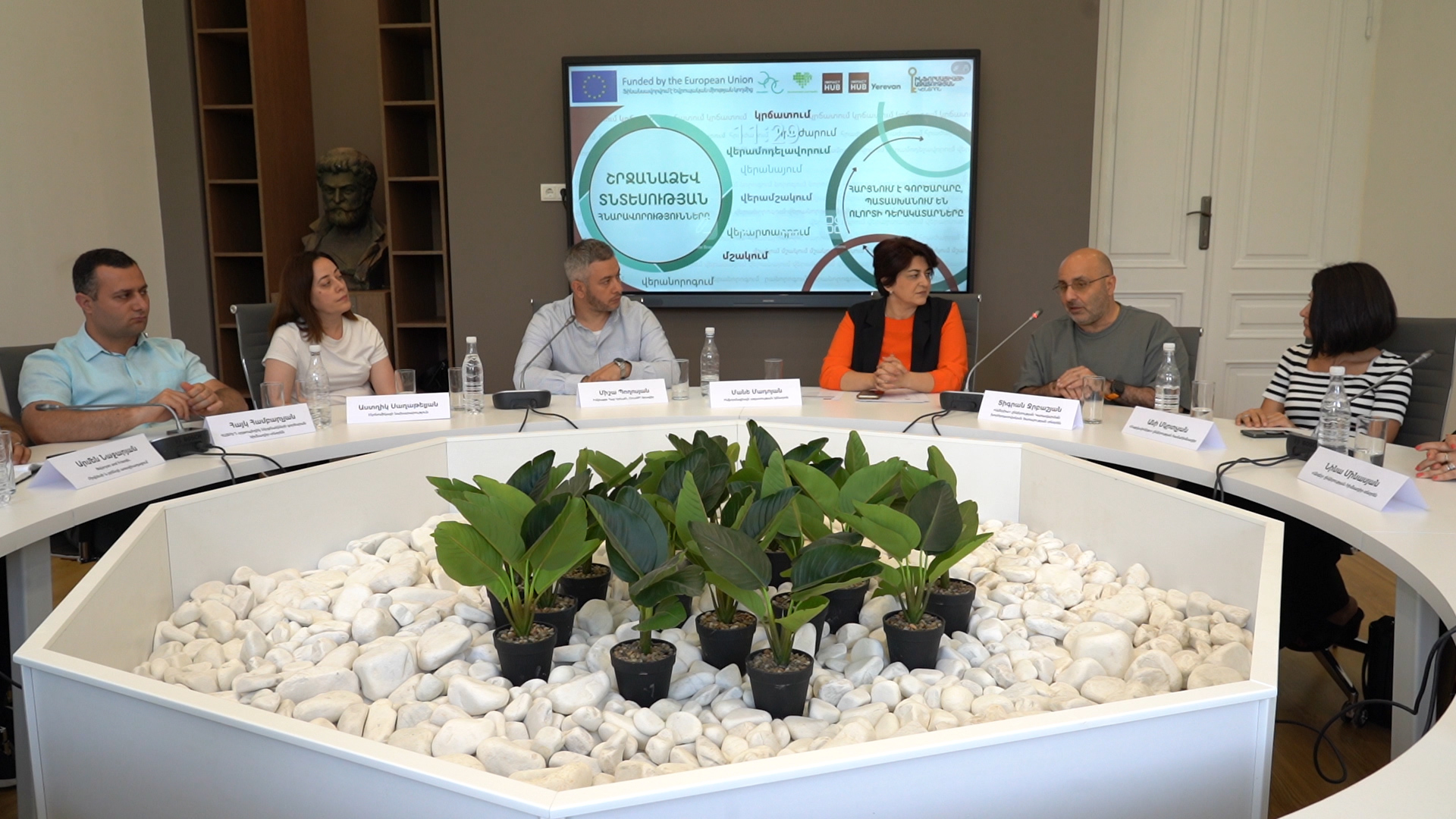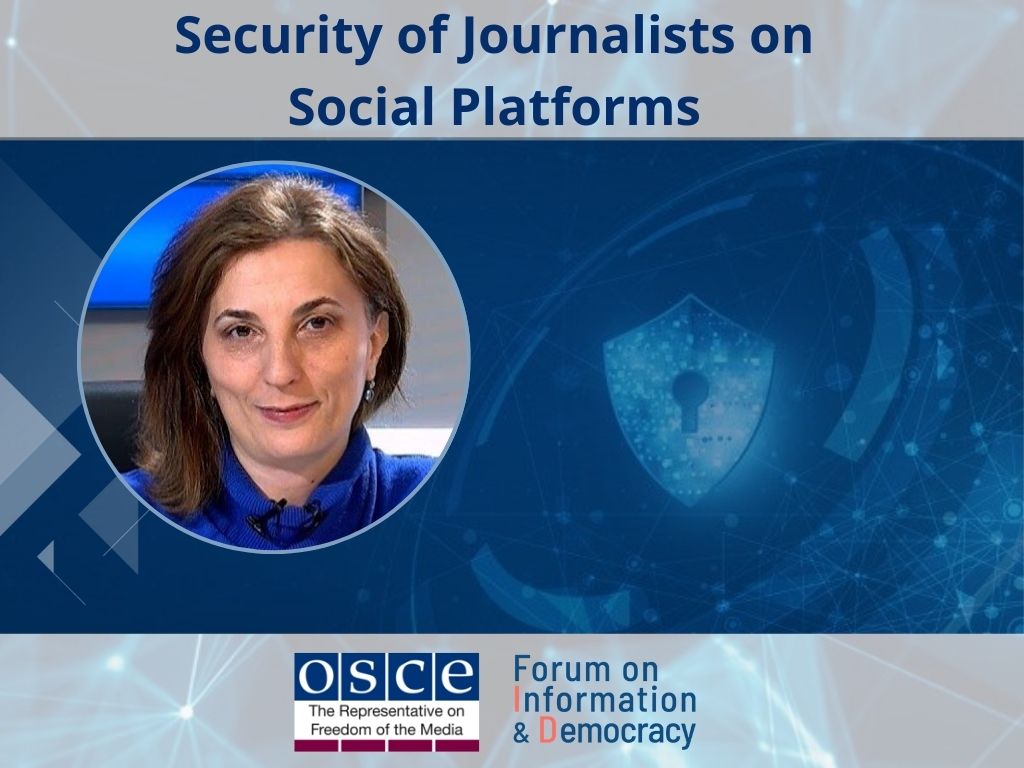The Opinion of the Information Disputes Council
On the court case filed by Tigran Terteryan, in the persons of his legal representatives Hamlet Terteryan and Susan Nazaryan vs. “168 Zham” (168 Hour) Ltd. and Marineh Martirosyan
In an article published in the 26-27 May issue No. 53 (813) of “168 Zham” daily and entitled “The Director sued the Ministry of Education and Science”, the following information was disseminated: “according to the residents of Ethmiadzin city, the son of former school director has set the school’s document archive on fire”.
The legal representatives of Tigran Terteryan, the son of former director of No. 2 high school of Etchimiadzin, Susan Nazaryan, submitted a claim to the First Instance Court of General Jurisdiction of Nork-Marash Administrative Districts of Yerevan, demanding the court to oblige the Respondents “168 Zham” Ltd. and Marineh Martirosyan to refute the information that Tigran Terteryan has set the school’s document archive on fire, as well as to charge the respondents 2 000 000 mln. AMD, as compensation for defamation.
After examining the case, on 13 April 2012 the court decided to reject the case because of finding it groundless.
The examination of the court’s decision on the present case shows that the court did not consider the factual data regarding the arson of the school’s document archive by T. Terteryan amongst facts subject to proof, which are of crucial importance for the case’s resolution.
According to part 3 of Article 1087.1 of Armenia’s Civil Code, defamation is the public statement of facts about a person, which do not correspond to the reality and damage a person’s honour, dignity or business reputation.
Abstaining from providing any assessments in this Opinion about the activity of S. Nazaryan as former director of School No. 2 of Etchmiadzin town (moreover that with this connection there is an ongoing criminal case No. ԱՐԴ/0051/01/12), based on part 3 of Article 1087.1, as well as the conclusions of the Armenian Constitutional Court and Cassation Court, the Council finds that it was not realistic to provide an objective legal assessment about the court claim, without finding out whether the information about T. Terteryan’s setting the school’s document archive on fire corresponded to reality or not. Thus, the court was to find out if these data had concrete substantiations or were abstract and speculative.
2. After studying the article’s contents, the Court found that the journalist and the company have made a clear reference to information source, thus the Court found that the last circumstance envisaged by part 6 of Article 1087.1 of the Civil Code, which is crucial for being exempted from liability, is proved.
The basis for such conclusion by Court was S. Yeghiazaryan’s testimony in court according to which his wife works for that school and informed him that they say, the school’s archive was burnt by the son of the former school director. With this, the Court found that the information published by the media outlet was disseminated based on conversations amongst residents of Etchimadzin city, that the journalist and the newspaper did not place on record the information published in the article themselves and the disseminated data were only a result of information publically reproduced by the residents of the city, with the journalist and the media outlet being just transporters of information.
According to part 6 of Article 1087.1 of the Civil Code, a person shall be exempted from liability for insult and defamation if the factual data stated or presented by him/her are the verbatim or diligent reproduction of information disseminated by an information agency, as well as of information contained in another person’s public speech, official documents, other information means or information contained in any creative piece; and when disseminating it a reference has been made to the information source (the author).
The RA Cassation Court, referring to the clarification of the concept “defamation” in its civil case No. ԵԿԴ/2293/02/10, placed on record that “public statement” should be understood as the verbal speech by a person aimed at making that information available to an indefinite number of persons and is made at public events organized as per certain formats. In the same decision, while addressing the term “information source” and relevant provisions as defined under points 6 and 9 of article 1087.1 of the Civil Code, the Cassation Court placed on record that according to the meaning of the article 1087.1 of the Code, information sources shall be the persons, who publish information through various means.
Taking into account the afore-said, the Council finds that the Court’s conclusion on the present case, according to which the journalist has disseminated information received from the society, which confirmed that the representatives or information sources are the residents of Etchmiadzin, thus no liability is involved, does not correspond with the aforementioned clarifications of the Cassation Court. Besides, the reference to “according to the residents of Etchimadzin” in the article is extremely vague and theoretically in this manner insult and defamation can be published about any person.
Taking into account the above-mentioned, the Council arrives the following conclusion:
- It was not realistic to provide an objective legal assessment about the court claim, without finding out whether the information about T. Terteryan’s setting the school’s document archive on fire corresponded to reality or not. Thus, the court was to find out if these data had concrete substantiations or were abstract and speculative.
- The Court’s conclusion on the present case, according to which the journalist has disseminated information received from the society, which confirmed that the representatives or information sources are the residents of Etchmiadzin, thus no liability is involved, does not correspond with the aforementioned clarifications of the Cassation Court, which provide that a person shall be exempted from liability for defamation if the published information was part of an event organized as per certain format. Besides, the reference to “according to the residents of Etchimadzin” in the article is extremely vague and theoretically in this “procedure” “insult” and “defamation” can be published about any person.
Information Disputes Council
Shushan Doydoyan (Secretary of the Council)-
President of the Freedom of Information Centre of Armenia;
Manana Aslamazyan – Director of Alternative Resources in Media program;
Boris Navasardyan – President of the Yerevan Press Club;
Aram Abrahamyan – Chief Editor of “Aravot” newspaper;
Ara Ghazaryan – Deputy Director of “Arni Consult” Law Firm office








